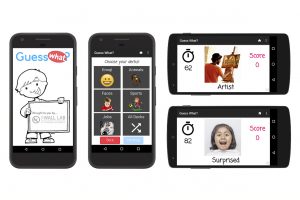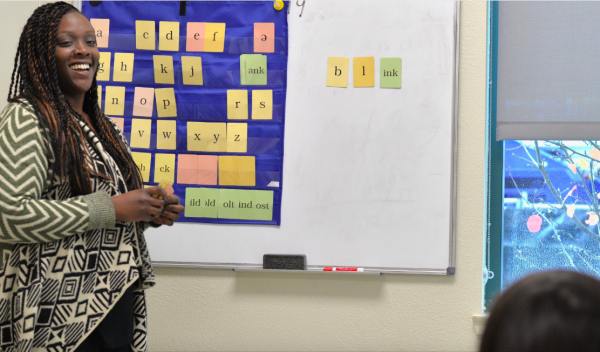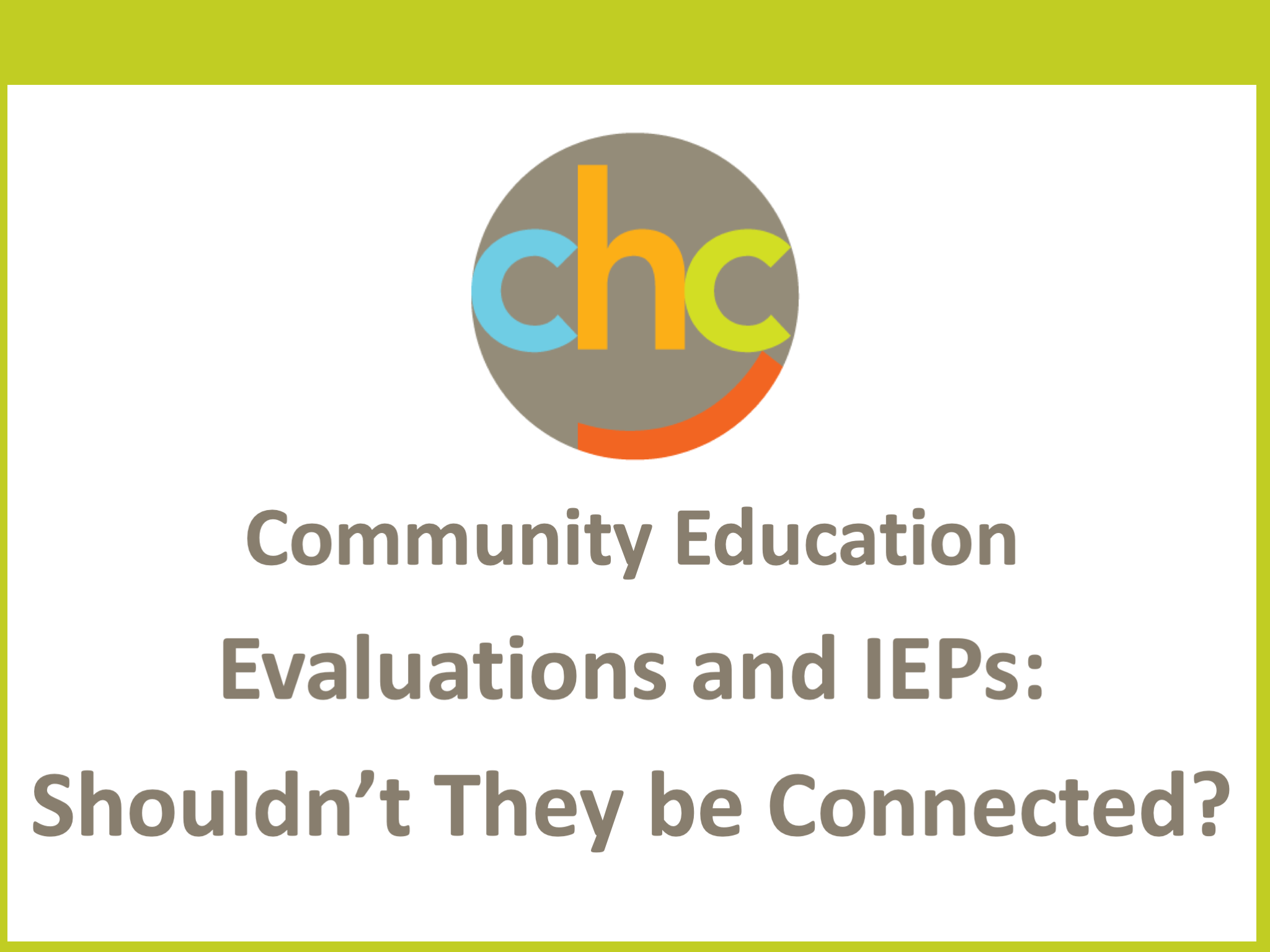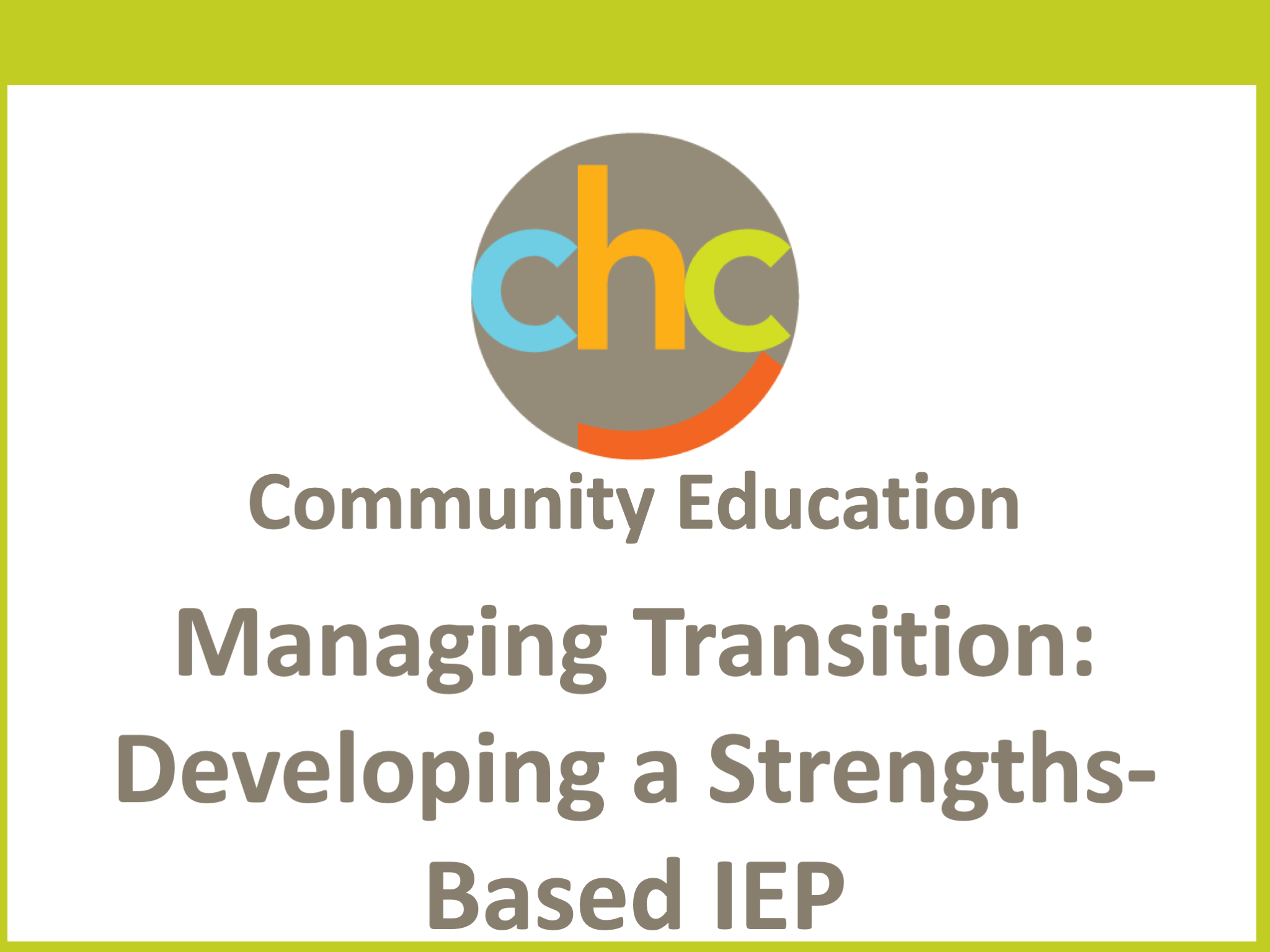Community Town Hall: Why the College Admissions News Hits Home: Stress, Anxiety and How to Help Your Kids [video]
The recent news about college admissions was deeply troubling to CHC and to the community because it amplifies the culture of stress around admissions and reinforces the stigma attached to learning differences and accommodations, leaving parents concerned that their kids’ evaluations won’t be taken seriously any more. Read more ›


 Diagnosing autism can take half a day or more of clinical observation, and that’s the quick part – often, families wait years just to get to that point. Now, in hopes of speeding things up, Stanford researchers are developing a smartphone app that could drastically reduce the time it takes to get a diagnosis.
Diagnosing autism can take half a day or more of clinical observation, and that’s the quick part – often, families wait years just to get to that point. Now, in hopes of speeding things up, Stanford researchers are developing a smartphone app that could drastically reduce the time it takes to get a diagnosis. 
 Approximately 10% of us have weak working memory; however, the estimates of the percentage of weak working memory in students with specific learning disorders, including dyslexia, ranges from 20 to 50 percent. Weak working memory is a core difficulty for students with ADHD, Inattentive Type.
Approximately 10% of us have weak working memory; however, the estimates of the percentage of weak working memory in students with specific learning disorders, including dyslexia, ranges from 20 to 50 percent. Weak working memory is a core difficulty for students with ADHD, Inattentive Type. 
 Five years after a sweeping overhaul of the diagnostic criteria for autism, research suggests that the changes have led fewer people to be identified with the developmental disorder.
Five years after a sweeping overhaul of the diagnostic criteria for autism, research suggests that the changes have led fewer people to be identified with the developmental disorder. 
 A substantial percentage of students with ADHD symptoms severe enough to affect them both academically and socially are not getting any support in school for the disorder, says a new study based on the experiences of nearly 2,500 children and youth.
A substantial percentage of students with ADHD symptoms severe enough to affect them both academically and socially are not getting any support in school for the disorder, says a new study based on the experiences of nearly 2,500 children and youth. 
 Written by Lisa Parnello, Literacy Specialist & Wilson Credentialed Trainer
Written by Lisa Parnello, Literacy Specialist & Wilson Credentialed Trainer

 Attention-Deficit/Hyperactivity Disorder (ADHD) is typically described by the problems it presents. It is known as a neurological disorder, marked by distractibility, impulsivity, and hyperactivity, which begins in childhood and persists in adults. And, indeed, ADHD may have
Attention-Deficit/Hyperactivity Disorder (ADHD) is typically described by the problems it presents. It is known as a neurological disorder, marked by distractibility, impulsivity, and hyperactivity, which begins in childhood and persists in adults. And, indeed, ADHD may have 




